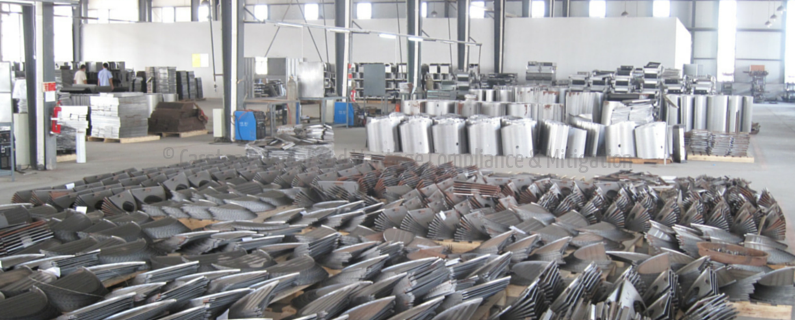Accessing China’s manufacturing sector has never been more enticing. Still a relatively recent entry as a player in the world’s economy (China opened its first “Special Economic Zone” in Guangdong province in 1979), in 2011, China overtook the US as the world’s largest producer of manufactured goods. Now, the country is aiming at becoming the top manufacturing destination in the world, with the intent of providing high-quality production, reliable service and environmentally friendly processes across the entire sector. International manufacturers who are looking for Chinese suppliers should know how this industry currently operates to fully comprehend the value of China’s bold plan for its future.
In June of this year, China announced its “Made in China 2025” initiative, which details a comprehensive upgrade of the entire Chinese manufacturing sector over the next decade. Crafted by the Chinese Ministry of Industry and Information Technology, the plan had input from over 150 Chinese engineering and industrial experts. With the goal of maintaining and improving China’s place as THE international manufacturing destination, the plan focuses on improving processes across the entire sector, including adopting and implementing international production standards.
With a similar intent to Germany’s “Industry 4.0” plan (announced in 2011 and implemented in 2013), China has a much steeper hill to climb to achieve the level of industrial sophistication anticipated by the European industry leader. The swift development of such a large industrial base has meant that efficiency and quality standards have lagged behind, leaving an overall manufacturing sector that is highly uneven in terms of product and process qualities.
Evolving global practices create further complexities:
– National and international producers have been demanding an increasingly diverse and customized list of supplies and products through internet ordering and purchasing.
– Online order burdens cause fluctuations in supplies and materials production.
– Chinese cultural events can have a significant impact on worker attendance and performance, both of which can negatively impact contract fulfillment.
– International holidays add annual cyclical production demands that can set back existing contracts, both in delivery times and production quality.
– Internal population shifts to more remote locations across the country are adding additional shipping burdens to the entire sector.
– And because many suppliers accept cash-on-delivery payments, some will bump one project for another that will pay faster or higher, leaving the first contract delayed, or filled with unsatisfactory products.
The “Made in China 2025” plan is intended to address these very issues. Past governmental attempts have failed to ensure industry-wide implementation of standardization to improve product and service quality. Many Chinese manufacturers, plants and facilities still do not comply with health, safety or environmental rules. A significant percentage has yet to adopt comprehensive production plans that ensure for their contractors reliable and timely production of quality goods. Many factories still schedule each production run based only on the directives of the top order in the queue. Orders coming in the door can derail all the orders down the line. Many an international manufacturer has lost time and money because their supply contract wasn’t delivered on time, or it contained sub-par goods or materials, or both.
To avoid these challenges in the current industry, Chinese supply chain experts can direct international producers to factories and facilities that have proven track records for both standards compliance and high-timely contract performance. Many aspects of China’s manufacturing sector have benefited from comprehensive engagement with these agents over time, so there are hundreds of existing factories that understand the value of gaining and maintaining a long-term relationship with its international contractors. By using the services of an industry expert to choose an appropriate factory, the offshore buyers can be assured that their contract will be completed with quality materials in a timely manner.
China’s government continues to press toward a future of global dominance of the manufacturing industry. Many of its current manufacturers are invested in maintaining their existing roles as compliant, timely suppliers for international contracts. Accessing these suppliers can be done safely and confidently today, and the resulting relationship will be that much more valuable as the rest of the industry catches up.
If you would like to know more, you can download a free report “8 Problems Businesses face when sourcing from China here.
https://vantagecompliance.com/8-problems-businesses-face-when-sourcing-goods-from-china-bg/
This blog was written by Carsten Primdal, an independent consultant who helps businesses that have manufacturing done overseas – especially in China – to minimise supply chain risk.Drawing on years of on-the-ground experience and a strong understanding of the cultural and commercial context, Carsten is passionate about helping his clients to gain greater control over the risks most companies face knowingly or unknowingly.
Questions? Concerns? If you are considering buying from Chinese factories and would like more information, please feel free to contact us see what Vantage Compliance can do for you.
I can be reached at carsten@vantagecompliance.com or on (+61) 413 089 020
You may also like to read these articles:
Two Key Questions To Answer Before Onboarding Your Chinese Manufacturing Supplier
Off-Shore Manufacturer’s Certificates Require Credibility
Factory Planning Principles Improve Supply Chain Quality
Mitigating Risk of Quality Fade in Overseas Manufacturing Facilities
How to Assure your “Green” Supply Chain in China
ChAFTA Opens Doors for increase in China-Australia Business relations
China Verification for Your Manufacturing Supplier Needs
Australian Industry Agreements Encourage More Chinese Factory Verifications
China Factory Verification: Check Before You Buy
Frozen berry recall highlights potential supply chain risks in offshore production



